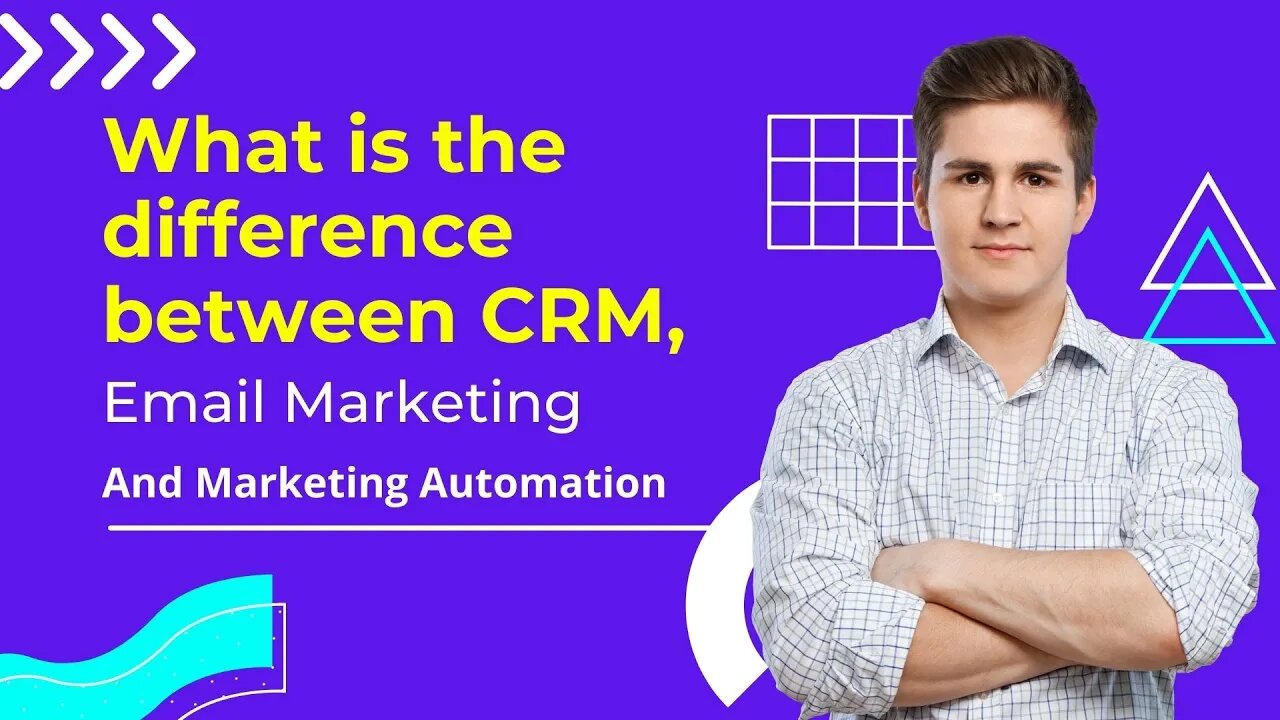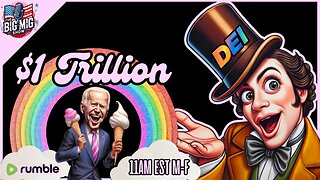Premium Only Content

The Difference Between CRM, Email Marketing and Marketing Automation
While most of us have heard of CRM (customer relationship management) systems, Marketing Automation is a relatively new concept. As a result, it's not always evident how various marketing tactics and the technologies used to manage them differ. In this piece, I'll go over each one and illustrate how they differ. The requirement to manage your customer interactions is at the heart of both CRM and Marketing Automation. We may learn to know our consumers better over time by storing data about them, allowing us to create better relationships, which leads to increased profitability.
Customer relationship management.
Our capacity to gather, store, and manage customer data, as well as trigger business processes that lead to sales, is critical to managing customer relationships. So whether it's a filing cabinet, an excel spreadsheet, a CRM system like Salesforce or Sugar, or a Marketing Automation system like Hubspot, Acton, or Commsbox, all of these key functionalities are shared.
While CRM refers to a set of operations that help us manage client connections in its broadest sense, the acronym is most commonly used to refer to the software tools that assist us manage those processes. CRM systems evolved in tandem with our capacity to collect and handle vast volumes of customer data through computerized systems. After the data has been acquired, it is utilized to initiate actions such as making follow-up phone calls and scheduling meetings with prospects and clients. The CRM system's primary goal is to manage workflow as it moves through the sales funnel. Account and contact administration, opportunity tracking, lead scoring, task and event monitoring, and reporting are all common functions. A CRM system may manage quotations and estimates, email marketing, and contact histories at a higher level. CRM systems are frequently connected with telemarketing systems, delivering real-time data to screens. Traditional CRM systems were developed primarily in an offline context. Telemarketing centers, direct marketing responses, and face-to-face sales interactions were the first sources of data for CRM systems. However, by merging email marketing and social media publishing, CRM providers are progressively stepping into the field of marketing automation.
The opportunities given by online data collection gave rise to marketing automation solutions. New types of client data are now flowing in through landing pages, web forms, and email answers in the digital world. When this information is loaded into marketing automation software, it generates automated and personalized answers, mostly in the form of emails and personalized site content. Whereas we used to know our customers on a personal level, the relationship is becoming increasingly anonymous. A virtual distance exists between the organization and the client as we reach out to gain customers using Google Ads, search engine optimization, blogging, and online paid media. To get to know our customers, we need to collect, analyze, and use data now more than ever.
Relationships that were once personal but time-consuming to manage can now be completely automated with the help of digital media and marketing automation technology. Amazon has achieved tremendous success by using this ability to capture personal data and follow individual's online customer behavior. Smaller businesses can now use marketing automation technologies to implement Amazon-style marketing techniques. A simplified automated client journey might look like this in terms of processes:
A customer journey utilizing Marketing Automation as an example.
A effective marketing automation approach will take the customer on a journey that follows the IDIC model developed by Pepper and Rogers (2011). It will recognize visitors, classify them according to target market parameters, interact with them, and then personalize some aspects of the communication and or product offering.
What's the difference between Customer Relationship Management (CRM) and Marketing Automation?
CRM and marketing automation have the same goal at their core: to collect and manage customer data, which is subsequently utilized to drive sales and marketing actions. While CRM was developed with a sales focus in mind, Marketing Automation Software was developed with an internet marketing focus in mind. Many CRM systems include marketing automation features, and vice versa. In essence, there isn't much of a distinction; it's more of a question of emphasis. We discovered an incredible variety of techniques in our examination of a wide spectrum of companies. Small businesses might use Outlook to maintain their contacts and an Excel spreadsheet to keep track of opportunities. They may then switch to Mailchimp or Constant Contact's free and subsequently paid versions.
What do you think about our video? Let us know in the comment box below. Please like this video and subscribe to this channel for our future updates. Thank you.
-
 LIVE
LIVE
Benny Johnson
49 minutes agoPANIC: AOC Exposed for HIRING Illegal Aliens as Top Staff Self-Deport, Homan Reports to DOJ | JAIL?!
6,601 watching -
 1:05:01
1:05:01
Timcast
1 hour agoInfowars Reporter MURDERED Was On Ukrainian "Hit List," Attacks On Tesla Spark CIVIL WAR Fears
13.5K25 -
 2:05:43
2:05:43
Matt Kohrs
11 hours agoStock Market Crash: Turnaround Tuesday?! || The MK Show
24.3K4 -
 LIVE
LIVE
LFA TV
15 hours agoTHE WAR WITHIN! | LIVE FROM AMERICA 3.11.25 11AM
4,366 watching -
 34:08
34:08
BonginoReport
4 hours agoVictory Over Marxism: BLM Plaza Falls (Ep.157) - 03/11/2025
65.6K71 -
 LIVE
LIVE
Right Side Broadcasting Network
19 hours agoLIVE: House Judiciary Hearing on Antitrust Law and the NCAA - 3/11/25
1,968 watching -
 LIVE
LIVE
The Tom Renz Show
53 minutes agoThe Globalist Engineered Economic Collapse Beginning With Attacks on Elon Musk, X & Tesla
196 watching -
 LIVE
LIVE
The Big Mig™
13 hours ago“DEI with a Side of Debt: Biden’s Trillion-Dollar Giveaway”
2,285 watching -
 1:17:34
1:17:34
Dear America
12 hours agoMassive Cyberattack Against Elon's X Sparks Widespread CONCERN! + More Attacks On Tesla Vehicles?!
60.3K15 -
 LIVE
LIVE
Wendy Bell Radio
6 hours agoOver The Target
11,298 watching